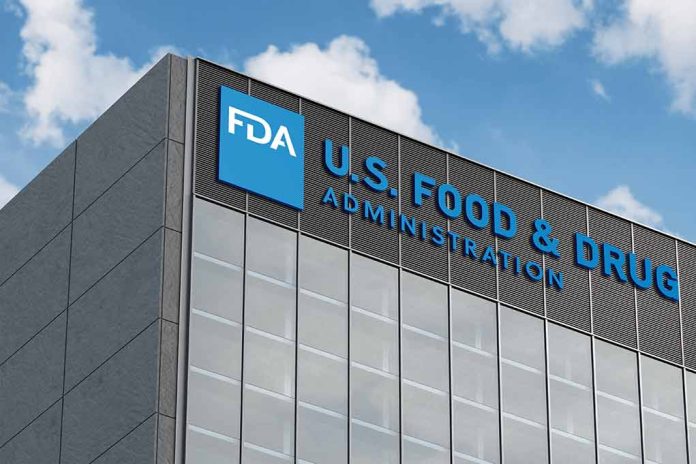
Aldi’s failure to disclose dangerous allergens leads to FDA-mandated recall across 16 states, affecting thousands with milk and soy sensitivities.
Key Takeaways
- Aldi has recalled Casa Mamita Churro Bites and Atlantic Salmon Portions due to undeclared milk and soy allergens respectively
- The recall affects products distributed across 16 states including California, Florida, and Illinois
- No allergic reactions or illnesses have been reported yet, but consumers with allergies are advised to return products for a full refund
- The FDA is actively monitoring the recall to ensure proper implementation and consumer safety
Aldi’s Widespread Recall Affects Multiple States
The FDA has forced Aldi to recall two popular food items from store shelves across 16 states due to potentially life-threatening allergen concerns. The recall impacts Casa Mamita Churro Bites Filled with Chocolate Hazelnut Cream, which contains undeclared milk ingredients, and Atlantic Salmon Portions with Seafood Stuffing, containing undisclosed soy. This oversight in ingredient labeling could pose serious health risks to Americans with specific food allergies, particularly concerning since these products were widely distributed throughout southern and western states.
“Aldi has issued a recall of two popular products in 16 states following concerns about undeclared allergens,” declared by Aldi.
The Churro Bites were distributed to stores in Alabama, Arkansas, Florida, Georgia, Iowa, Illinois, Kentucky, Louisiana, Missouri, Mississippi, North Carolina, South Carolina, and Tennessee. The affected products can be identified by their 7.05-ounce boxes with UPC Code 4061459561807 and a “Best If Used By” date of July 14, 2026. Meanwhile, the Salmon Portions were primarily sold in California, Nevada, and Arizona, packaged in 16oz containers with UPC Code 4061459716313 and a use/freeze-by date of June 2, 2025.
Health Risks and Consumer Safety Protocols
While no allergic reactions have been reported yet, the potential health implications remain serious. Milk and soy are among the nine major allergens that can trigger severe reactions in sensitive individuals. This type of oversight in food labeling highlights the ongoing challenges in maintaining strict food safety protocols, even among major retailers like Aldi. The FDA’s intervention demonstrates the importance of regulatory oversight in protecting American consumers from potential health hazards.
“According to Aldi, the product was distributed in the following states: Alabama, Arkansas, Florida, Georgia, Iowa, Illinois, Kentucky, Louisiana, Missouri, Mississippi, North Carolina, South Carolina and Tennessee,” declared by Aldi.
Food allergies represent a growing public health concern in America, with approximately 32 million people affected by various food allergies. For these individuals, consuming undeclared allergens can lead to reactions ranging from mild discomfort to potentially fatal anaphylaxis. This recall serves as yet another reminder of how critical accurate food labeling is for public safety, especially considering the widespread distribution of these particular Aldi products.
Aldi’s Response and Consumer Recommendations
Aldi has instructed customers who purchased the affected items and have relevant allergies to avoid consumption and return the products to their local store for a complete refund. This recall action follows standard industry protocols for addressing undeclared allergens, though questions remain about how such labeling oversights occurred in the first place. The grocery chain, known for its discount prices, must now balance addressing this safety concern while maintaining consumer confidence.
“While ALDI is committed to providing only the best quality at the lowest prices, our top priority is the safety of you and your family. From developing stringent standards to working with trusted manufacturers on product quality and testing, every measure possible is taken to fulfill that promise,” declared by Aldi.
For consumers concerned about potential allergen exposure, vigilance remains crucial. Always check product labels, stay informed about recalls through the FDA website, and promptly return any affected items. This incident serves as an important reminder that even with regulatory oversight, the ultimate responsibility for food safety awareness often falls on the consumer. Those with serious food allergies should remain particularly cautious about processed foods where allergen cross-contamination or undeclared ingredients may occur.


